It’s known by many friends that I class myself as a “republican” in the broadest sense, but not necessarily why or how I would choose to replace our British monarchy in the highly unlikely event that I have any form of say in the matter. Not that I have any issue with the people at a personal level, though I doubt very much we would get on at any level. I don’t like the flummery and nonsense of state occasions, but there are plenty of good reasons for changing our system, whatever its supporters may think.
After all, proponents would say, do you really want to throw the baby away with the bathwater, discard centuries of tradition and adopt a corrupt presidency by a failed politician? And anyway, they bring in stacks of tourism and business, and they are loved by millions. The queen, they say, is a woman of duty who works hard on her responsibilities to the nation.
The cost argument is much disputed, as is the money allegedly attracted into the country. But that is not in any case the argument I want to pursue here. There are other issues here worthy of discussion:
- The hereditary system and lack of democratic accountability
- The preservation of wealth, privilege rigid class-based divisions within our society
- Enshrining a church in the state
- The use of the monarchy in media to deflect real life issues.
1) Heredity
That you should be entitled to a position of rank only by virtue of birth is a concept alien to modern civilisation. It belongs in medieval times. We would condemn regimes where power is handed down from father to son as undemocratic nepotism and patronage of the worst sort. We have had stability since 1952 of course, courtesy of the same monarch has been on the throne, but stagnancy would be a better description.
For the most part our royal family is not corrupt (though some of their practices and beliefs might be deemed undesirable and questionable), though they could be in other hands. Indeed, our current constitutional position applies the role of figurehead to the monarch, which is not to say that the royal family does not try to influence policy behind the scenes, or sometimes openly if you consider Prince Charles’s hamfisted campaign against modern architecture, for example.
It’s quite possible that on occasions they overstep the mark and are criticised for it, or even force a constitutional crisis (the abdication of Edward VIII being the most obvious example), but the royal family are unaccountable to the people of this country, whatever they do. We are supposed to admire them but have no power to change their behaviour, their line of succession or their rights over us, much less to remove them from office if they fail to do the job we want from them.
Supporters claim they are born into an onerous duty. A simple answer: time that responsibility withers and dies so we can select people on merit to do the job of head of state.
2) Divisiveness
Coupled with the principle of heredity is the preservation of wealth and privilege. Not even old wealth, in the sense that wealth tends to produce leaders in most countries unless someone has genuinely worked their way to the top it preserves the glass ceiling, the restriction between the aristocratic few and the many below and the status quo. British society moves very quickly at the grass roots, but very slowly at the top – it is anti-democratic and designed to be shielded from reflecting the needs of society. The institutions move slowly and the checks and balances in the system don’t cope with the demands of society.
The cliche is that the Windsors (originally Saxe-Coburg-Gotha, now decreed Mountbatten-Windsor) serve us, but the reality is they serve the state in a way that suits them and politicians. Walkabouts among the general populous and the occasional MBE doled out to a lollipop lady do not substitute for the right to participate in the state for anyone who may aspire to that role. Call it a two-tier society if you like, but the monarchy is deliberately isolated from the people it claims to represent, where other European monarchies have at least made an effort to integrate into society.
I also abhor the anachronistic honours system with its overtones of “empire” and reinforcement of patronage to the monarchy, and indeed to politicians. “Cash for honours” has been around since politics began, but the conferred or at least implied social status from being closer to the inner circle of royalty. Our subservience is forever assumed and demanded. My view is simple: they are no better than anybody else in the country, and should never be treated as such.
3) Church and State
The Queen is head of state and head of the Church of England, courtesy of Henry VIII. With advice from the PM she it is who appoints bishops and archbishops, and they must in turn swear allegiance to her, and in turn all institutions of state swear allegiance to her and to the official church. By definition, this would make the UK a theocracy, and indeed even today bishops sit in the House of Lords to pass comment on legislation. The Preface to the 39 Articles of the Church of England describes the monarch as:
‘being by God’s Ordinance, according to Our just Title, Defender of the Faith and … Supreme Governor of the Church of England’.
In his or her coronation oath, the Sovereign promises to maintain the Church, and the Sovereign must be in communion with the Church of England, that is, a full, confirmed member.
I believe every person in the country should be free to follow or not follow whatever religious faith they like, so long as they do so peacefully and in a law-abiding way, preferably behind closed doors, but enshrining the church in the state in the person of the monarch has no place in 21st Century Britain, especially since the church has its own agenda to influence policy.
We must be a secular society in which people worship through choice, without having a religious interest forced upon us. Disestablishment is long overdue, though the CofE would fight tooth and nail to prevent it – you suspect without royal and state endorsement Anglicanism would wither and die.
3) Monarchy and Media
Whether we like it or not, the royal family are plastered over the media on every occasion. It’s almost impossibly to avoid, even if you turn your TV off and don’t read papers! There is continued speculation about members of the royal family: their births, marriages and deaths, their interests, their behaviours, their diaries, their clothes, you name it, mostly nauseatingly sycophantic.
Some people evidently enjoy that sycophancy, though given the wealth and privilege, the best medical care money can buy, you may wonder why they deserve any more sympathy and attention than anybody else. If somebody I know went in to hospital for a bladder infection, I would have sympathy – when it is Prince Phillip in the news continuously, I have none. Not that I wish him any harm, but frankly there is no good reason why we should have deferential headline news about his stay in hospital.
Of course, not all the publicity about royals is good news. The media is sometimes condemned by members of said family (though not the Queen, who maintains a dignified silence in public but probably makes her views known in private, though comments in public by her private secretary are not unknown) for intrusion into their privacy through the paparazzi long lens photographs, or critical pieces by some journalists.
Like celebrities, they want media coverage on their own terms but not when they are engaging in some behaviours (there are many examples, as a Google search reveals – though only today this is in the news!), which is effectively hypocrisy, though you may ask why the media are not more critical, not less. Personally, I would be quite happy if we never heard anything about the royal family and they were treated like any other family – but they would hate that.
Personally, I don’t care what they do so long as they do it at their own expense and don’t bother me! But there is a darker scheme to the media efforts on behalf of the royal family. For a long time, whenever there is a potential crisis looming, the government is unpopular and austerity is in full swing, governments have cynically created royal occasions to ‘improve morale’.
***
So, what next? I for one have no idea whether or how the royal family could be quietly pensioned off and the monarchy replaced, given how deep-seated within our uncodified constitution, institutions of state and culture it has become, though one scenario would see the monarchy lose much popularity after the death of the current sovereign, and the potential for conflict between Charles and son no 1 in the line of succession. Just possibly, something more radical may happen.
But let’s assume that had happened as part of a massive and much-needed reform to the way UK PLC operates. And that is the point – I would not simply propose replacing the monarchy in isolation, but a whole raft of changes, many of which I have discussed at length elsewhere (watch out for other blogs on this topic.) But I would certainly not go for the frying-pan-to-the-fire option of instituting a presidency where retired politicians of dubious reputation could get elected, especially not any presidency where the tired and anti-democratic rhetoric of party politics came to dominate the position of Head of State. Please not an executive president like the USA – that would be the worst of all worlds.
I would much sooner the role be non-political and non-executive, but with attitude – in the sense that we should have someone with whom the country can identify, who understands and cares about the issues affecting the lives of ordinary people, is not into self-aggrandisement but is not afraid to make statements pointing out the issues the country must resolve and for peace.
I appreciate that she had political past, but Mary Robinson as president of Ireland made a big impact without being divisive; she was someone with whom the Irish people respected and admired, being one of them. In spite of his past, you could say the same about Nelson Mandela, a true statesman and a very rare breed.
But in a sense it would be great if someone without any connection with politics could be elected president, someone from a very humble upbringing and without airs or graces, privileges and wealth. Someone who could would earn the respect of Britons for being their proxy and representative, to talk on their behalf. Any suggestions?

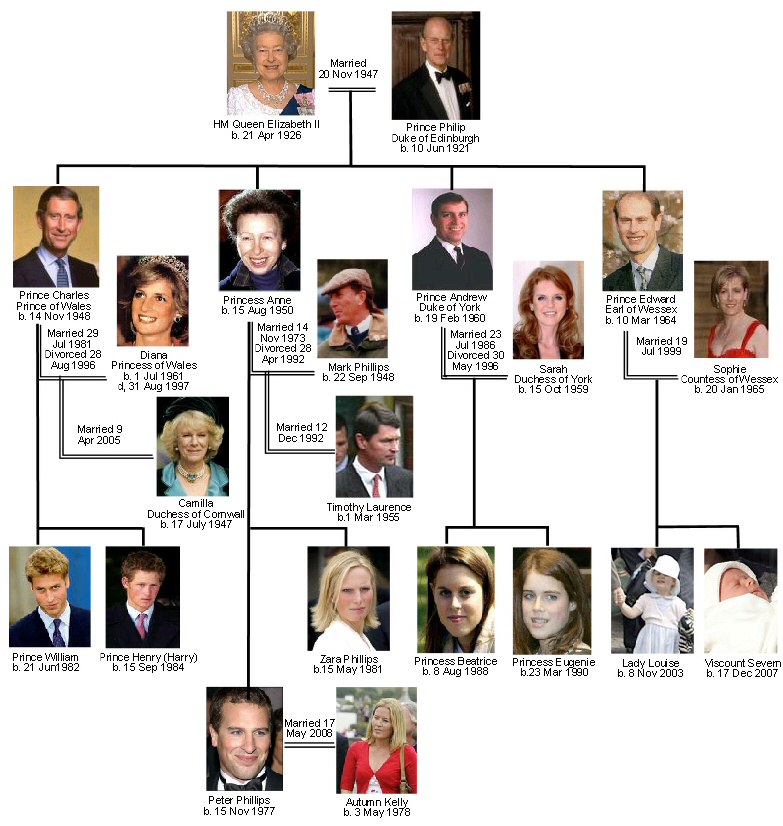
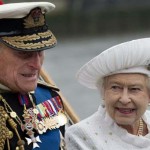
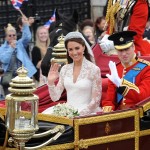
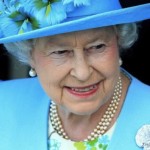
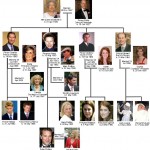
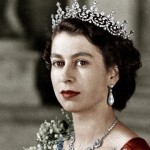
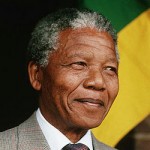
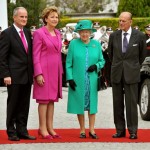
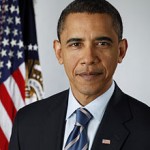
Being Greek I doubt my right to comment on British monarchy. However, having lived through my country’s lack of identification with a respected person, who can undoubtedly personify my country abroad, I presume to disagree with some, not all, of your arguments. Here we have exactly what you mentioned: failed politicians to be identified as heads of state with whatever conotations this term brings to mind. Most of them do not have a personality to undergo such a heavy task let alone the fact that they are indiferent, or more usually not liked at all by most people. Anyway quick recovery to your Head of State.
Thank you for your comment, Lina, and it is most welcome. I’d agree with you if the alternative were “failed politicians” as non-executive president, though it could be a way to find someone who would be a breath of fresh air to lead the country for a period. The biggest problem with the monarchy is precisely that it roots us so firmly in the past, and a past where we no longer wish to be.